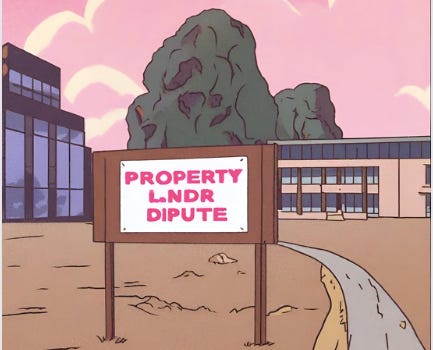Resolving Property Development Disputes in India: The Role of ADR
Navigating Property Development Disputes in India: Leveraging ADR for Efficient Resolutions
Property development in India is a burgeoning industry, but it often comes with its fair share of disputes and legal complexities. From ownership disagreements to zoning conflicts, these disputes can hinder progress and lead to prolonged legal battles. In this blog post, we'll delve into the types of property development disputes in India, cite relevant laws, explore common dispute scenarios, and discuss how Alternate Dispute Resolution (ADR) methods can offer a more efficient and amicable resolution.
Types of Property Development Disputes
1. Ownership Disputes: These disputes arise when multiple parties claim ownership rights over the same property. They can stem from unclear property titles, inheritance issues, or fraudulent transactions.
2. Zoning and Land Use Disputes: Issues related to zoning regulations, land use permissions, and environmental clearances can lead to disputes between developers, government authorities, and environmental groups.
3. Contractual Disputes: Contracts play a crucial role in property development projects. Disputes may arise over breach of contract, delays in project completion, payment disputes, or quality of workmanship.
4. Neighborhood and Community Disputes: Property developments can impact neighboring communities, leading to disputes over noise, pollution, traffic congestion, and changes in property values.
### Relevant Laws and Regulations
In India, property development disputes are governed by various laws and regulations, including:
- The Real Estate (Regulation and Development) Act, 2016 (RERA): Regulates the real estate sector and provides a mechanism for addressing disputes between developers and buyers.
- The Indian Contract Act, 1872: Governs contractual relationships and provides remedies for breach of contract.
- Local Zoning and Land Use Laws: Enforced by municipal authorities and state governments to regulate land development activities.
Scenario: Resolving a Contractual Dispute through ADR
Imagine a scenario where a property developer and a construction contractor are embroiled in a contractual dispute. The contractor claims that the developer has not made timely payments as per the agreement, while the developer alleges that the contractor has not met quality standards outlined in the contract. This dispute has stalled construction progress and threatens to escalate into a costly legal battle.
How ADR Can Help
Alternate Dispute Resolution (ADR) methods such as mediation, arbitration, and conciliation offer a more efficient and cost-effective way to resolve property development disputes. Here's how ADR can be applied to the scenario mentioned above:
1. Mediation: A neutral third-party mediator facilitates discussions between the developer and contractor to identify common ground, explore options for compromise, and reach a mutually acceptable resolution. Mediation promotes open communication and preserves the business relationship between the parties.
2. Arbitration: If mediation fails to yield a resolution, arbitration provides a structured process where an arbitrator, chosen by both parties or appointed by a designated authority, reviews evidence, hears arguments, and issues a binding decision. Arbitration is less formal than court proceedings and can be faster and more cost-effective.
3. Conciliation: Similar to mediation, conciliation involves a neutral conciliator assisting parties in reaching a settlement. However, in conciliation, the conciliator may suggest potential solutions and play a more active role in facilitating negotiations.
Conclusion
Property development disputes in India can be complex and time-consuming, but ADR methods offer a viable alternative to traditional litigation. By promoting dialogue, fostering cooperation, and offering tailored solutions, ADR can help parties involved in property development disputes achieve swifter and more amicable resolutions, ultimately benefiting the industry and stakeholders alike.
The information provided in this blog post is for informational purposes only and should not be construed as legal advice or a legal opinion. Readers are advised to consult with qualified legal professionals or experts for specific guidance and assistance related to insurance adjustment disputes or any legal matters mentioned in this post. The author and publisher of this post do not assume any responsibility or liability for actions taken based on the information provided herein.


